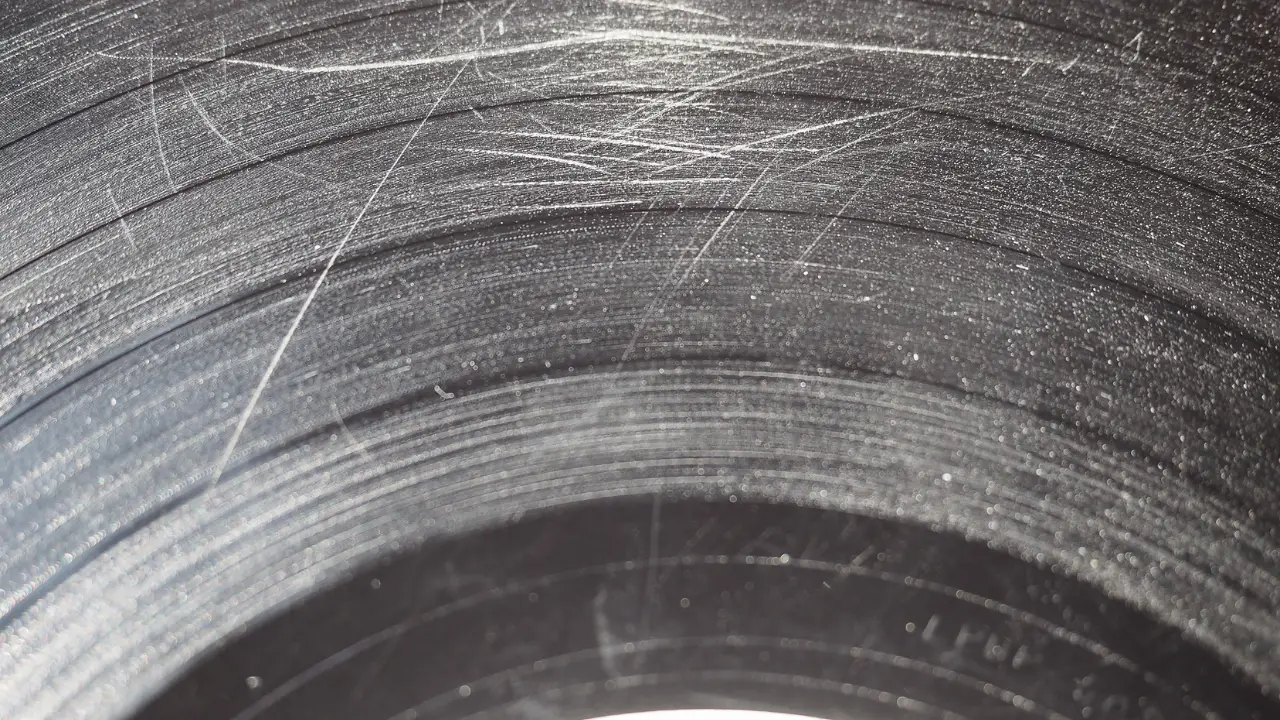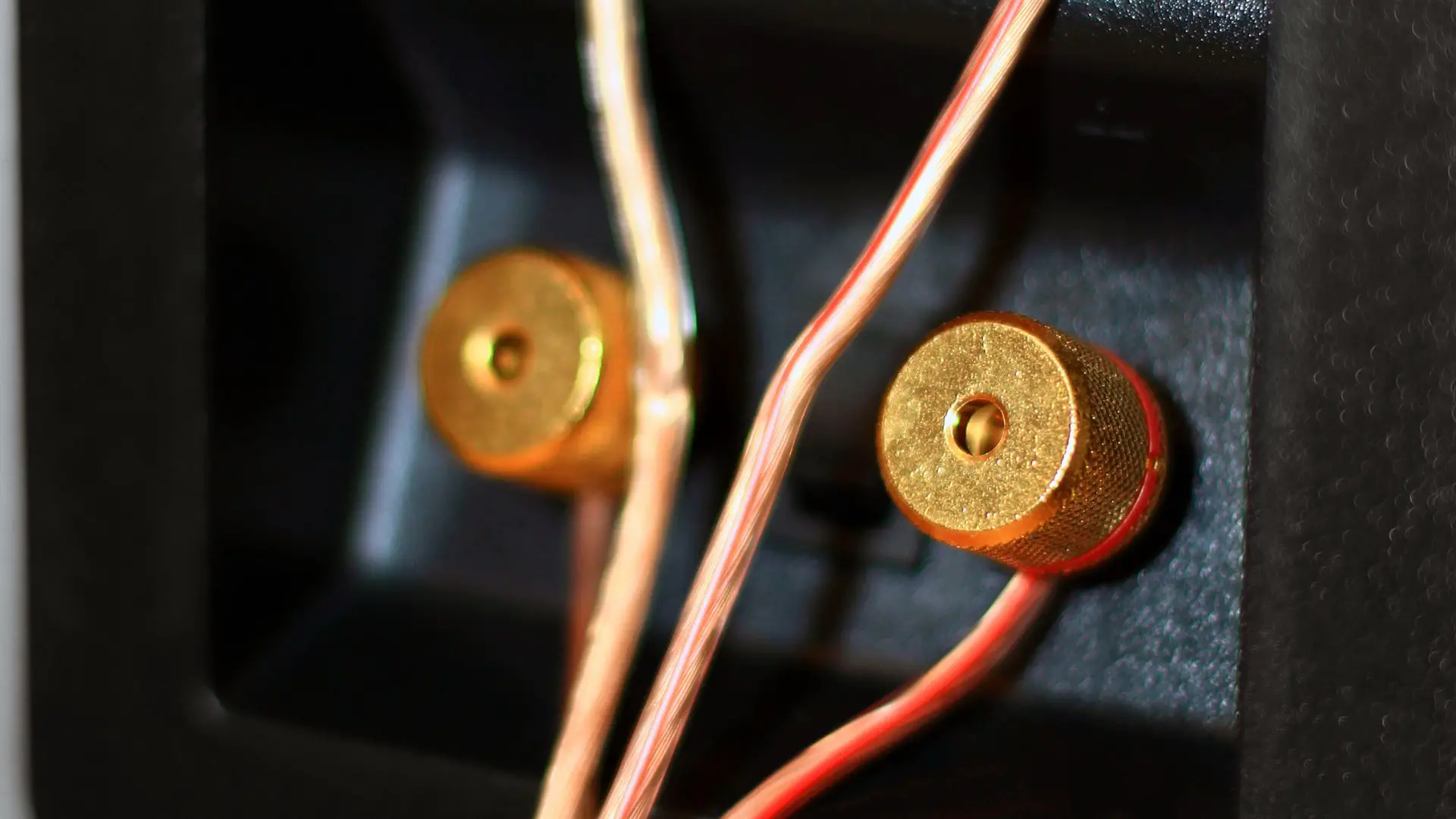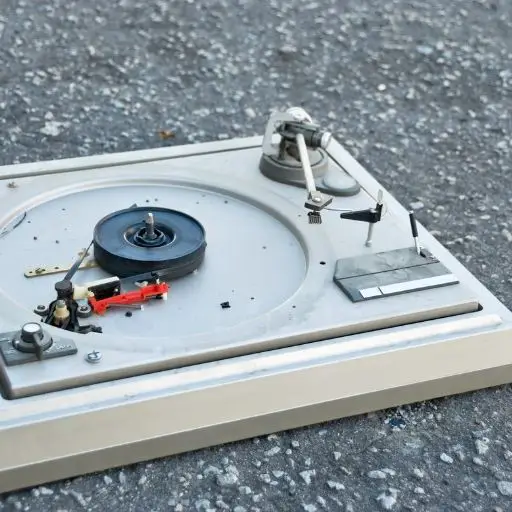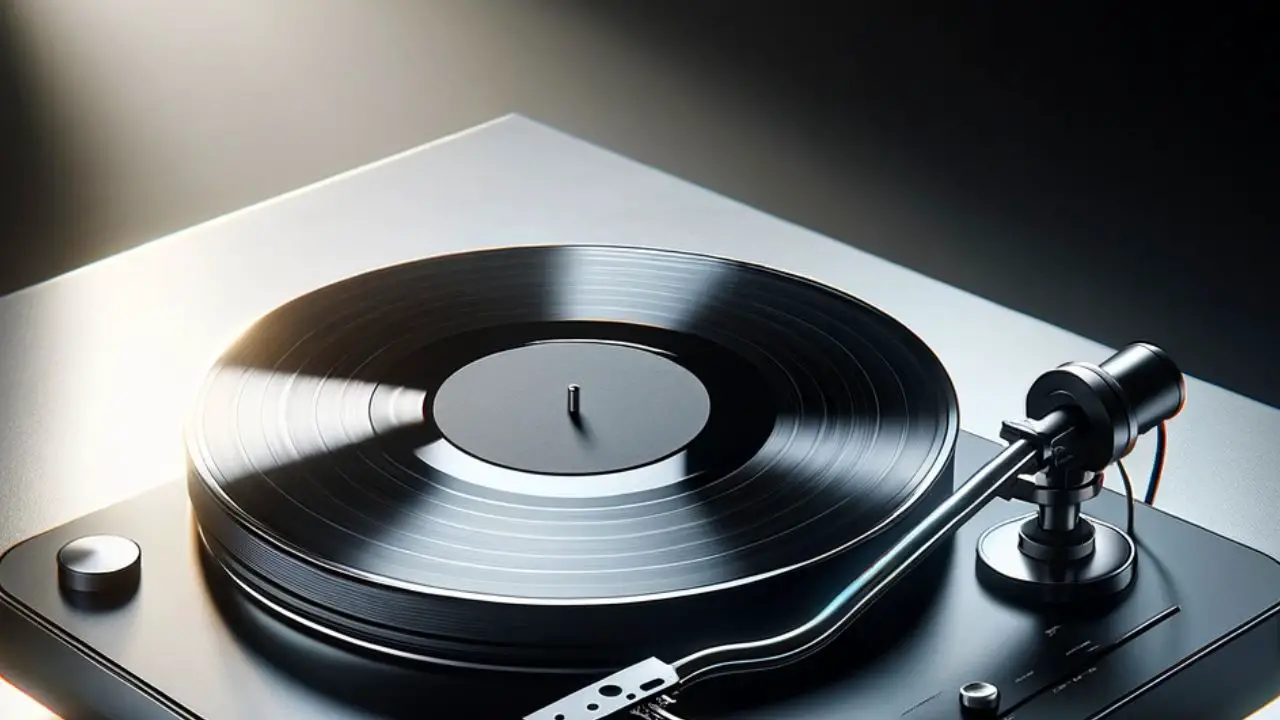Vinyl records are prone to scratches due to their fragile nature. Scratches can occur in various ways, including mishandling when being removed or replaced in sleeves, incorrect storage, cueing up records and changing tracks without using the cueing lever, being dropped or placed on surfaces, and dirt and dust in the grooves of the record.
It’s important to handle vinyl records with care to avoid scratches. When removing or replacing a record in its sleeve, hold it by the edges and avoid touching the playing surface. Always store records vertically and never stack them on top of each other. Use a cueing lever to lift and lower the tonearm and avoid dragging it across the record’s surface. When changing tracks, lift the tonearm and move it to the desired position.
Scratches on vinyl records can affect the sound quality and reduce the lifespan of the record. While some scratches may not be audible, others can cause pops, clicks, and skips. It’s important to inspect records before playing them and avoid playing records with visible scratches. If you do play a scratched record, be prepared for potential sound issues.
While there are DIY methods that claim to fix scratches on vinyl records, it’s best to avoid them as they can cause further damage to the record. If you have a valuable or rare record with a scratch, it’s best to seek professional help from a record restoration specialist.
Table of Contents
Factors Influencing Scratch Formation
Vinyl records are prone to scratches and damage due to their delicate nature. There are several factors that can contribute to scratch formation on vinyl records. Here are some of the most common factors:

Incorrect Storage
Storing vinyl records incorrectly can lead to scratches and damage. Stacking records on top of each other can cause scratches due to the weight of the records pressing down on each other. It is important to store vinyl records vertically in a cool and dry place to avoid any damage.
Handling
Improper handling of vinyl records can cause scratches and damage. Dropping or placing records on surfaces can cause scratches due to the impact. It is important to handle vinyl records with care and avoid any unnecessary impact.
Dirt and Dust
Dirt and dust in the grooves of the record can cause scratches and damage. It is important to keep vinyl records clean by wiping them with a dry, anti-static cloth before playing them.
Improper Use of Equipment
Using equipment improperly can cause scratches and damage to vinyl records. Cueing up records and changing tracks without using the cueing lever can cause scratches. It is important to use equipment properly and follow the manufacturer’s instructions to avoid any damage.
Physical Handling and Scratches
Vinyl records are delicate and prone to scratches, so proper physical handling is critical to avoid damaging them. Here are a few tips to help you handle your records safely:
Even with careful handling, scratches can still occur on your records. Shallow scratches that don’t penetrate the groove wall may not affect sound quality, but deeper scratches can cause skips, pops, and distortion. If you notice scratches on your records, it’s best to avoid playing them until you can assess the damage.
In some cases, you may be able to repair minor scratches using a vinyl record repair kit or a homemade solution of wood glue and water. However, it’s important to note that these methods can also cause further damage if not done correctly, so it’s best to consult a professional if you’re unsure.

Storage and Scratches
When it comes to vinyl records, proper storage is key to avoiding scratches. Mishandling during storage is one of the most common causes of scratches. If records are stacked on top of each other, the weight of the records can cause scratches. To avoid this, store your records vertically, using a record shelf or crate. This will also prevent warping of the records due to the weight of other records.
Another common cause of scratches is incorrect handling when removing or replacing records in their sleeves. Always handle records by the edges and avoid touching the grooves. When removing a record from its sleeve, place the sleeve on a flat surface and gently slide the record out. When replacing the record, be sure to hold it by the edges and carefully slide it back into the sleeve.
Cueing up records and changing tracks without using the cueing lever can also cause scratches. The cueing lever is designed to gently lower the stylus onto the record, preventing scratches. Always use the cueing lever when changing tracks or cueing up a record.
Dirt and dust in the grooves of the record can also cause scratches. To avoid this, always clean your records before playing them. Use a record cleaning brush or a carbon fiber brush to remove any dust or debris from the grooves. Avoid using paper towels or other rough materials, as these can cause scratches.

Playing the Record and Scratches
When playing a vinyl record, scratches can occur due to various reasons. Mishandling when removing or replacing the record in its sleeve, incorrect storage, cueing up records and changing tracks without using the cueing lever, being dropped or placed on surfaces, and dirt and dust in the grooves of the record are some of the common reasons for scratches on vinyl records.
To avoid scratches, always handle your vinyl records with care. When removing or replacing the record in its sleeve, make sure to hold it by the edges and avoid touching the grooves. Incorrect storage, such as stacking records on top of each other, can also lead to scratches. Instead, store your records upright in a cool, dry place away from direct sunlight.
When playing your vinyl record, make sure to use the cueing lever to properly cue up the record and change tracks. This will prevent unnecessary scratches from occurring. Additionally, make sure to clean your records regularly to remove any dirt and dust that may have accumulated in the grooves.
It’s important to note that once a vinyl record is scratched, it cannot be fixed. Attempting to fix a scratched record can actually make the problem worse and damage the record even further. Therefore, prevention is key when it comes to avoiding scratches on your vinyl records.

Preventing Scratches on Vinyl Records
Here are some tips to help prevent scratches on your vinyl records:
Proper Handling
The first step to preventing scratches on your vinyl records is to handle them properly. Always hold the record by its edges and center label, and avoid touching the grooves with your fingers. When placing the record on a turntable, make sure to gently lower it onto the platter and avoid dragging it across the surface.
Cleanliness
Keeping your vinyl records clean is essential to preventing scratches. Dust, dirt, and debris can accumulate on the surface of the record and cause scratches when played. Use a carbon fiber brush or antistatic record cleaning brush to remove any dust or debris before playing your records.
Storage
Proper storage is also important to prevent scratches on your vinyl records. Store your records vertically in a cool, dry place away from direct sunlight and heat sources. Avoid stacking records on top of each other, as this can cause warping and scratches.
Protective Sleeves
Using protective sleeves can also help prevent scratches on your vinyl records. There are many different types of sleeves available, including paper, polyethylene, and polypropylene. Choose a sleeve that fits your record snugly and provides adequate protection from dust, dirt, and scratches.
Repairing Scratched Vinyl Records
Vinyl records are prone to scratches, and while it is not possible to fully repair them, there are some methods that can help improve the sound quality. Here are a few ways to repair scratched vinyl records:
1. Clean the Record
Before attempting to repair a scratched vinyl record, it is important to clean it thoroughly to remove any surface dirt and debris. Use a soft, lint-free cloth and a record cleaning solution to gently clean the record. This will help ensure that the repair process is more effective.
2. Locate the Scratch
Once the record is clean, locate the scratch. Use a bright light and a magnifying glass to help you see the scratch more clearly. It is important to note that not all scratches are created equal. Some scratches are shallow and may not affect the sound quality, while others are deep and can cause skips and pops.
3. Use a Fine Toothpick or Needle
To repair a scratch on a vinyl record, you can use a fine toothpick or needle to gently retrace the grooves. This can help reduce the severity of the scratch and improve the sound quality. Be sure to use a very fine toothpick or needle to avoid causing further damage to the record.
4. Use a Record Restoration Kit
There are several record restoration kits available that can help repair scratched vinyl records. These kits typically include a solution that fills in the scratch and a tool to smooth it out. While these kits can be effective, they are not a guaranteed solution and may not work on all scratches.
5. Prevent Future Scratches
The best way to repair scratched vinyl records is to prevent them from happening in the first place. Always handle your records with care and store them properly in protective sleeves. Avoid touching the playing surface of the record and always handle it by the edges. Additionally, be sure to keep your record player clean and well-maintained to prevent damage to your records.
The Impact of Scratches on Sound Quality
Vinyl records are known for their warm, rich sound, but scratches on the surface can have a significant impact on the overall sound quality. Scratches can cause a variety of issues, from minor pops and crackles to skipping and distortion.
Minor scratches might cause a slight pop or crackle, but deep scratches can cause a skipping record. It’s like having a hiccup in the middle of a heartfelt ballad. However, not all scratches will necessarily distort the sound.
The severity of the scratch and its location on the record can also affect the sound quality. Scratches near the center of the record, where the grooves are closer together, can have a more significant impact on the sound than scratches near the outer edge.
Additionally, scratches that run parallel to the grooves are less likely to affect the sound than scratches that cross the grooves. This is because scratches that cross the grooves can cause the stylus to jump out of the groove, leading to skipping and distortion.
It’s important to note that scratches aren’t the only factor that can impact sound quality. Other issues, such as dust and dirt in the grooves or a worn-out stylus, can also affect the sound. However, scratches are one of the most common issues that vinyl collectors and enthusiasts face.
Comparison with Other Music Formats
When it comes to music formats, vinyl records are often compared to digital formats like CDs and MP3s. Here are some differences to keep in mind:
- Sound Quality: Vinyl records are often praised for their warm, rich sound quality, which many audiophiles prefer over digital formats. However, this is subjective and depends on personal preference, as well as the quality of the equipment used to play the music.
- Durability: Vinyl records are more prone to scratches and damage than digital formats. However, with proper care and storage, they can last for decades.
- Tactile Experience: Vinyl records offer a unique tactile experience that digital formats can’t replicate. From the act of physically handling the record to the artwork and liner notes, vinyl records can be a more immersive way to experience music.
- Convenience: Digital formats like MP3s offer unparalleled convenience, allowing you to carry thousands of songs in your pocket. However, this convenience comes at the cost of sound quality and the tactile experience that vinyl records offer.
Overall, the choice between vinyl records and digital formats comes down to personal preference and priorities. If you value sound quality and the tactile experience of music, vinyl records may be the way to go. However, if convenience and portability are more important to you, digital formats may be the better choice.




